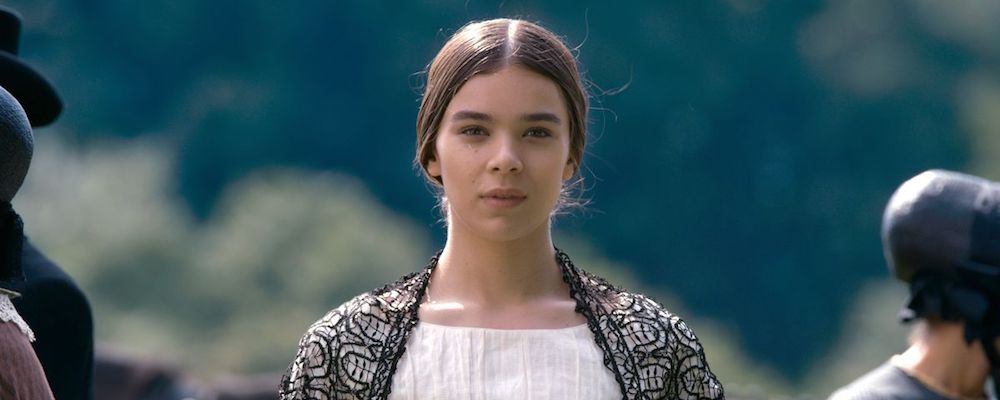‘Dickinson’ Is a Wickedly Clever Period Drama for Teen Literary Enthusiasts
Andrew Bundy
Though nearly 2,000 poems were published after the death of Emily Dickinson, the renowned writer remained a hidden and unknown figure throughout her days. In the new Apple TV Plus series “Dickinson,” talented actress and teen pop sensation Haliee Steinfeld portrays a curious, youthful reimagining of the poet. While the series takes place in the 19th century, the characters are portrayed as snappy millennials with nearly uncontrollable sex drives.
The first few episodes of Apple’s historic hoot are front loaded with witty banter, though light on plot. It’s essentially “Riverdale” meets period drama. The Dickinson family is desperate to marry their daughter Emily off to a gentleman suitor, but she has no interest in settling down. Emily is positively sure that she was placed on this earth to be a great writer; a husband would only prevent Dickinson from accomplishing her aspirations and she will stand for nothing less.
When George (Samuel Farnsworth), a friend with an obvious affection for her who happens to co-edit a college magazine, offers to publish one of her poems, Emily tells him that he mustn’t put her name in the paper, as her father (Toby Huss) doesn’t believe a woman should spend her time aspiring to be a writer, even going as far to write an essay on a woman’s place in society. “You are not a cat, Emily.” Her mother (Jane Krakowski) scolds her. “No,” Emily responds, “tragically, I am a woman.” George credits her as the author of the poem and Mr. Dickinson is furious.
Emily’s life drama is further complicated by her best friend (and secret lover) Sue’s (Ella Hunt) engagement to her brother (Adrian Enscoe). Sue’s parents have passed away and she is in a desperate financial situation. Emily pleads with her to change her mind, as they promised to make it as writers, and never get married. But true love doesn’t pay debts. When escaping the darkness of her every day, Emily sometimes enters a secret daydream, wherein she dons a red night dress, riding in the ghost carriage of Death, asking him to take her away for all eternity. The snippets of surrealism aren’t used very frequently after the pilot, but they add a fun level of gothic flavor to the period milieu.
It takes a little while to get your bearing on “Dickinson’s” individual language style; how different antiquated terms are spun into the casual slang of Gen-Z vernacular. Some of the affectations are wickedly clever, other enunciative tendencies can get tired. Emily’s poems are visualized through candlelight cursive, to warm effect. On the flip side, the show uses a lot of self-deprecating sarcasm, the snarky superiority of a narcissistic genius often stealing the spotlight. The series deftly commits to its vision, though it is inconsistent on the social front.
During a dinner discussion that turns political Mr. Dickinson rants that he is far from a “radical abolitionist” but does not morally agree with slavery. The show starts a lot of important conversations akin to this without ever pushing back against the societal status quo outside of teen rebellion. While the series surrounds a figure who would break down barriers, the setting seems to hinder the forward-thinking ideas rooted in the it’s concept, in a sense. But what’s especially odd is when historic accuracy becomes temporarily excused for the narrative convenience of progressing its ideas. Though slavery, and educational prejudice based on gender, still exist in the show’s time period, there are moments when the racial blinds go out the window, such as in a sensual party scene with shades of HBO’s “Euphoria.”
“Dickinson” seems more concerned with having a good time than with adhering to any sort of expectations regarding its social implications, which is both perfectly befitting of its subject, but also seems to overlook an even larger storytelling opportunity. Instead, Apple’s new series seems content to settle for being sentimental and scandalous, as well as creative. High school tropes, like passing notes across the classroom, instead become correspondences through the postal service. Some of these flourishes are laugh-out-loud funny and some have an air of superiority to them, much like one would expect from a teen poet with still a lot to learn about growing up.
“Dickinson” begins streaming Friday Nov. 1 on Apple TV+.

